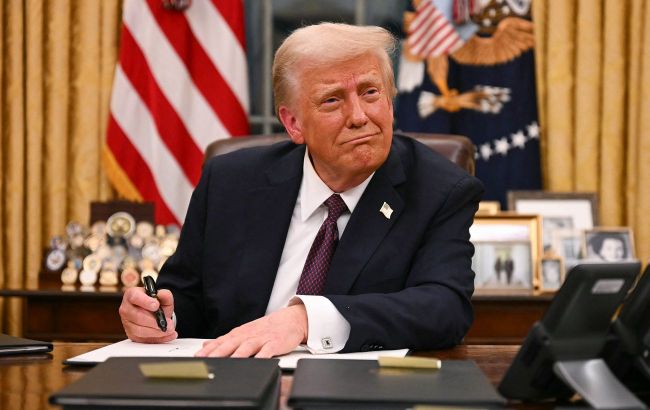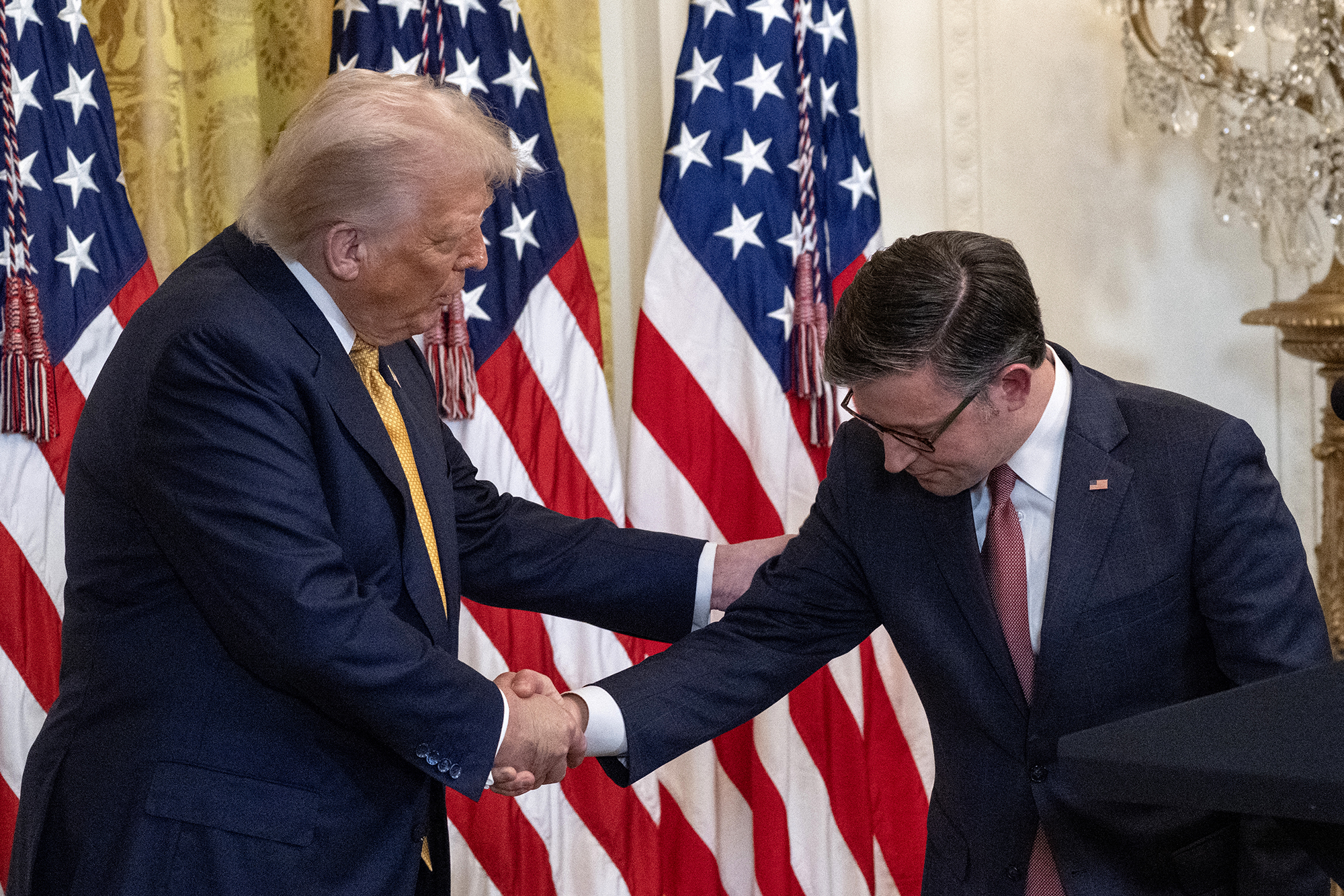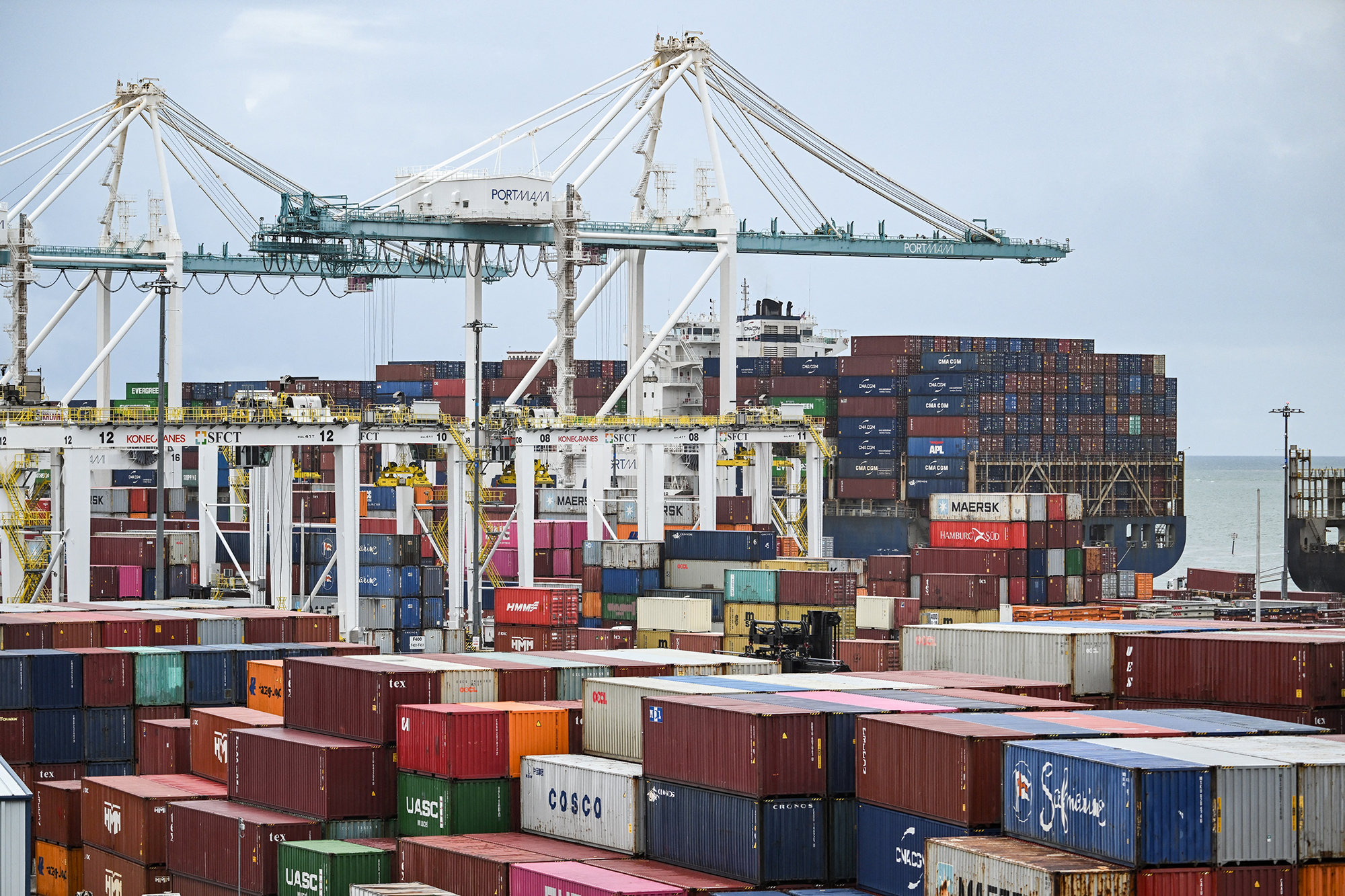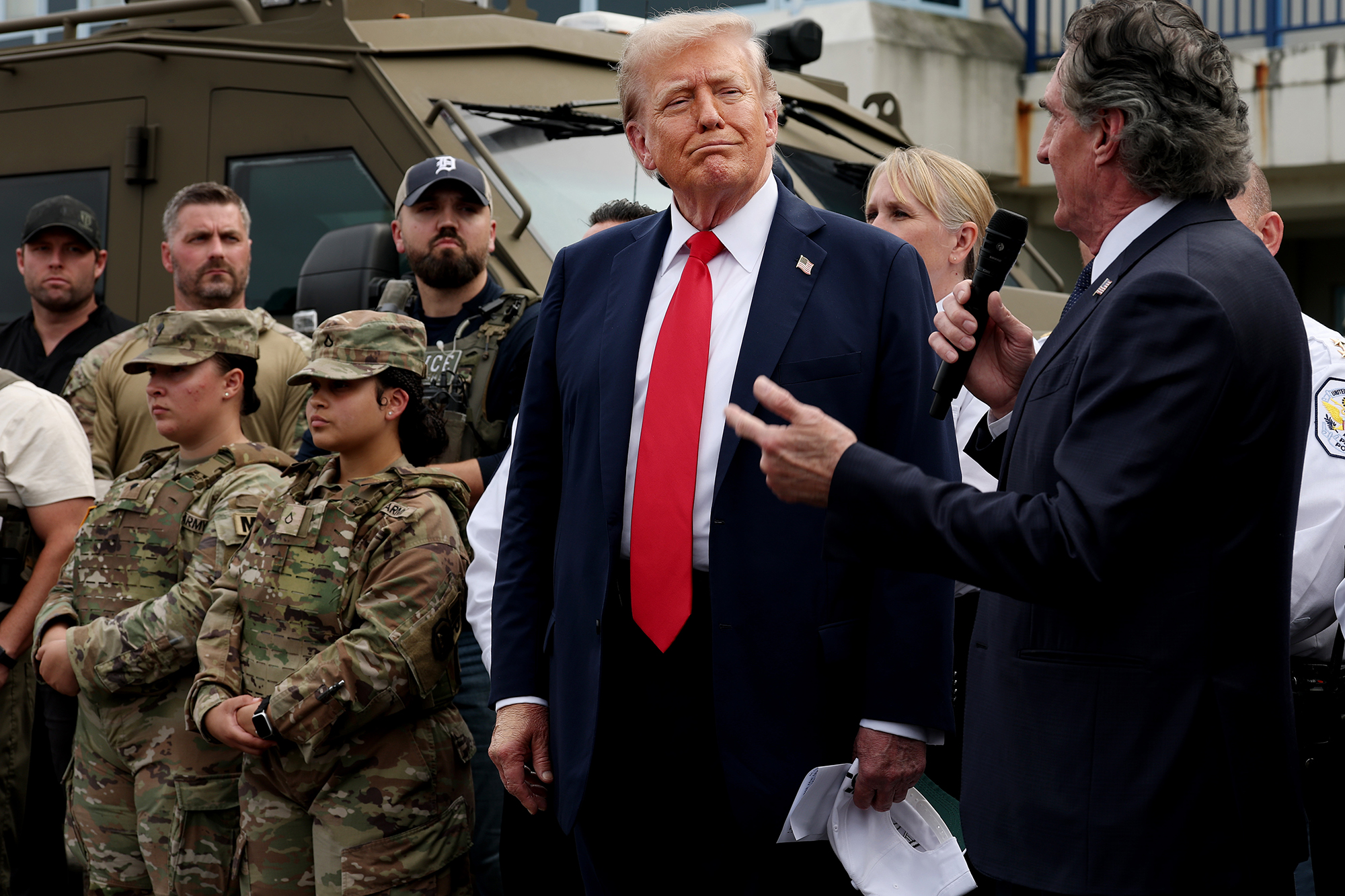Beyond Ukraine: How economy and elections shape Trump's policies
 US President Donald Trump (photo: Getty Images)
US President Donald Trump (photo: Getty Images)
In addition to ending the Russian-Ukrainian war, the US President faces several other challenges, the primary one being maintaining control over Congress next year. Why this is important for Donald Trump and how preparations for the elections are affecting his position on peace talks – read in the article by RBC-Ukraine.
Key questions:
- What is the trend in Trump's ratings?
- Why is it important for the US President to win the congressional elections?
- What could prevent Trump from retaining control of Congress?
- What is Trump's team doing to secure victory?
Observers from Ukraine may get the impression that Trump spends almost all his time working to end the Russian-Ukrainian war. This is especially noticeable in the afternoon in Kyiv, when the working day is just beginning in the US, and the news feeds are flooded with another batch of Trump's quotes on Russia, Ukraine, negotiations, and sanctions.
This is partly due to the interest of the American media, which constantly asks Trump and his team: What is happening with ending the war? And at Trump's regular briefings, both scheduled and spontaneous, Ukrainian issues are raised by journalists more often than even hotter and closer topics.
But if you systematically read Trump's posts on Truth Social for at least a few days, the picture changes. The US President's agenda includes a whole range of different issues, from other conflicts around the world and relations with partners and allies to a multitude of domestic issues.
Back to elections
Among them is the crucial issue of retaining power, even though Trump only returned to the White House in January this year. In November 2026, the US will hold midterm elections in Congress. The House of Representatives will be completely re-elected, and the Senate will be re-elected by one-third. This means that Trump's Republicans could lose their already slim majority, at least in the House of Representatives. The situation is somewhat better for them in the Senate.
But even losing one of the chambers in the long run will mean that Congress will be able to block most of Trump's initiatives and also hurt him politically by initiating impeachments or investigating the activities of his team members. So the US President needs to secure a Republican majority again at any cost.
The US has a majority voting system for Congress – the country is divided into hundreds of districts, each with a separate candidate. Of course, in many of them, the personality of the congressional candidates, their charisma, and their ability to negotiate with local elites will be important. But the political shadow of Trump that he casts on members of his party has no less effect.
According to a Quinnipiac University poll released in late August, 37% of registered voters said they approve of the President's performance, compared to 55% who disapprove. A Reuters/Ipsos poll conducted on August 22-24 gives higher ratings – 40% approve, 54% disapprove of Trump's performance.
Some of the US President's actions have boosted his ratings, while others have had the opposite effect, Uriel Epshtein, executive director of the American non-profit organization Renew Democracy Initiative, tells RBC-Ukraine.
"Tariffs, which had the most decisive, negative impact. Then there was Trump’s One Big Beautiful Bill Act, which was extremely costly, cutting taxes on the wealthy alongside massive reductions in aid to the poor, and further hurt the President’s image," Epshtein says.
As for migration, the situation is complicated. At the beginning of Trump's second term, most of the public was on Trump's side, supporting tough measures against immigration, Epshtein notes. However, the excesses on the part of law enforcement agencies had a rather negative effect on Trump.
"The ugly, inhumane way it’s played out, the expansion of ICE—the American immigration enforcement agency—have proven unpopular and public approval has flipped. It’s not a decisive switch though, with approval and disapproval on that issue fairly close," Epshtein tells the agency.

Donald Trump and House Speaker Mike Johnson (photo: Getty Images)
According to Vladyslav Faraponov, head of the American Studies Institute, ratings of 40% are still very high for Trump.
"I think that in the case of Trump's second administration, there is little that can be compared with his predecessors. The last time a President returned to office after losing was 125 years ago. But what is different is that the pace of decisions, especially at the beginning of his term in February-April 2025, was frantic," Faraponov emphasizes.
In his opinion, this is how it looked to Americans: those who supported Trump were still willing to turn a blind eye to almost anything, while his enemies and opponents did not expect any positive steps for themselves. Therefore, the tactic of doing everything quickly brought results — it preserved Trump's rating.
At the same time, there is an objective reality and some threatening trends that the US President must take into account, one way or another, and adjust his actions accordingly.
Economic problems
One of the main problem areas for Trump remains the economy. According to a Gallup poll conducted in early August, 34% of Americans cited economic problems (inflation and unemployment) as their main concern. Only poor government management (24%) and immigration (14%) followed.
Since April, Trump has been waging a trade war against most countries in the world. Almost immediately, he introduced a 90-day delay, and during this time, the US managed to reach agreements with some of its trading partners—the European Union, Japan, South Korea, and several other countries made concessions. However, the trade conflict with China, India, and other important partners continues.
On August 7, Trump's tariffs on more than 90 countries came into effect. They apply to almost all of the US's trading partners and range from 15 to 50%, depending on the country. It is currently difficult to assess their ultimate impact on the US economy, but preliminary modeling by Oakland University economics professor Niven Winchester shows that Trump's new tariffs reduce US annual GDP by 0.36%, which amounts to $108.2 billion or $861 per household per year. This is significant for some Americans.
"Why are the expectations so negative? Because the US is very heavily integrated into the global economy, and by and large, in recent decades, much of manufacturing has been outsourced to other markets," Ivan Us, chief consultant at the Center for Foreign Policy Studies at the National Institute for Strategic Studies, explains to RBC-Ukraine.
In practice, this means that with the introduction of trade tariffs, not only products that were manufactured entirely in China, India, or Mexico are becoming more expensive, but also those manufactured directly in the US, due to the supply of components for certain goods that may be assembled directly in the US.
"It has been calculated that, for example, in the production of a car, certain parts cross the US-Canada border five times, because some parts are manufactured in the US and some are finished in Canada. And, accordingly, this affects the cost of the product. There have already been estimates that with Canada alone, these tariffs will cause the average cost of a car in the US to increase by $3,000," the expert tells the agency.
So far, Americans' opinions on the state of the economy are divided, but dangerous trends are evident. According to a Wall Street Journal/NORC poll, only a quarter of American adults believe they have a good chance of improving their standard of living. 45% percent of those surveyed expect the economic situation to worsen over the next year. However, 44% of respondents said the state of the economy is excellent or good, which is 6% more than a year ago. At the same time, 56% consider the economic situation to be poor or not very good.
 Containers at the Port of Miami (photo: Getty Images)
Containers at the Port of Miami (photo: Getty Images)
According to Ivan Us, before the election, Trump can only radically influence the cost of gasoline in the US through intervention in Venezuela and the replacement of Maduro's regime with a more pro-American one.
"Then American oil service companies will flood into Venezuela, the country with the largest proven oil reserves in the world, and start producing a lot of oil, which will all pour into the world market, prices will fall, and voilà, prices at gas stations in the US will decrease. And that is perhaps the most important indicator in the United States," Us notes.
Incidentally, the US Navy is already off the coast of the country, where it is currently fighting so-called drug terrorism.
As for keeping prices for consumer goods down, one solution could be to reduce tariffs. At least with Mexico and Canada, which, together with the US, are part of the USMCA free trade zone.
However, there are no signs yet that the US economy will change dramatically. This means that Trump's team will have to be creative before the election.
How Trump wants to keep Congress
The strategy of Trump and his team for the elections can be divided into two parts. The first concerns creating favorable conditions for their candidates. Some of the initiatives here are quite constructive.
For example, Trump plans to issue an executive order requiring ID for voting in elections. Before, this wasn't required in a bunch of states. As a result, Republicans regularly accused Democrats of fraud.
Donald Trump's team also plans to significantly tighten regulations on postal voting, which some Republicans consider problematic. It is proposed to limit its use only to military personnel stationed abroad or to individuals with compelling reasons that make it impossible to vote in person.
This approach was used until 2020, when mail-in voting became available to everyone due to the pandemic. According to many in Trump's circle, this created opportunities for manipulation.
Other initiatives are very far from the spirit of democracy. We are talking about gerrymandering — changing the boundaries of electoral districts in such a way that more representatives of the respective party win in them. This should happen every 10 years, according to the census. However, in a number of states, local Republicans decided to redraw the districts ahead of schedule.
It all started in Texas. It is one of the fastest-growing states with a significant proportion of Latino and urban voters. At the end of August, local lawmakers changed the districts to weaken the influence of urban votes by adding rural areas to them. This should give Republicans at least five new seats in the House of Representatives.
Democrats tried to disrupt gerrymandering in Texas due to the lack of a quorum. In this state, two-thirds of the members—100 out of 150—must be present for a session of the House of Representatives to be held. So, Democratic representatives simply left the state.
But a powerful pressure campaign was launched against them, including threats of arrest for failing to attend the session. As a result, some of the Democrats returned, and the Republicans were able to gather a quorum and push through the redistricting.
In response, California, where the Democrats are in power, also decided to redraw the districts to artificially add extra seats for its representatives. However, the process cannot be completed before November.
These are not the only states where district redistricting is planned. Changes are also planned in the Republican states of Ohio, Missouri, and Alabama. For their part, Democrats have announced plans to change districts in New York and Illinois, but so far, nothing has come of it. In addition, most of the changes that have already been approved are now being challenged in court.
According to Vladyslav Faraponov, such things happen regularly in the US. When in power, both parties try to take full advantage of redistricting to ensure better conditions in the next election.
"This is a unique process in which there are virtually no rules of the game, or they are constantly changing. There is currently a high degree of polarisation of views, so neither party has a significant advantage, and therefore the fight for 4-5 seats, which could be decisive, is very intense," says the expert.
The second component of the Republicans' strategy is purely media-related. Trump's team is inflating his image as a strong leader as much as possible. In this context, we should consider the renaming of the Department of Defense to the Department of War, the deployment of the fleet off the coast of Venezuela, the dispatch of the National Guard to fight criminals in Washington and Los Angeles, as well as similar plans for Chicago and Baltimore.
Obviously, this is not all that Trump's team has in store. For example, the US President has proposed holding a national Republican Party convention before the election to highlight the party's successes and mobilize voters.
 Trump and National Guard soldiers in Washington (photo: Getty Images)
Trump and National Guard soldiers in Washington (photo: Getty Images)
At the same time, it is important to note that the Democrats have not yet managed to counter Trump with systematic work at the national level. Although in some places they have strong leaders who are ready to oppose the Republican authorities.
"It is still too early to say what the picture will look like on the eve of the 2026 midterm elections. But right now, it looks like the Republicans have a better chance of winning, that's for sure," Faraponov says.
Ukraine's role
For Ukraine, all this means that negotiations to end the war will, one way or another, be conducted in the context of influencing Trump's ratings here and now, without much thought for the longer term.
"For Trump, politics is everything, and consequences sadly aren’t even a priority. The best thing for Ukrainian leaders to do would be to try to convince the President that supporting them is in his personal political interest, but that can only go so far given the affinity he seems to exhibit for Vladimir Putin," Uriel Epshtein tells RBC-Ukraine.
Obviously, a successful end to the war could add political points to Trump. At the same time, his meeting with Putin in Alaska showed that even the American media loyal to the US President is ready to mercilessly criticize Trump for his missteps.
"I think Trump realizes that it is time to show results in negotiations with Russia, that is clear. But the midterm elections are more about domestic policy than foreign policy," Faraponov notes.
The next election cycle in the US once again complicates the work of Ukrainian diplomats. In these conditions, the main thing is to understand the real motives behind the US President's actions and to maintain a reasonable distance from both parties in the US, without succumbing to the temptation to bet on the likely winner — such an approach has already caused problems in the past.
Sources: Opinion polls, comments by Uriel Epstein, Ivan Us, and Vladyslav Faraponov, Reuters, MSNBC, The New York Times, Politico, and The New York Post.

